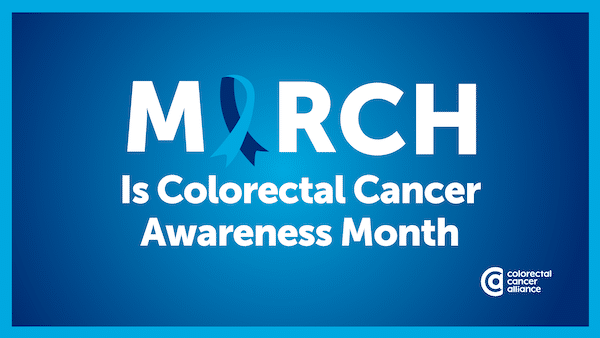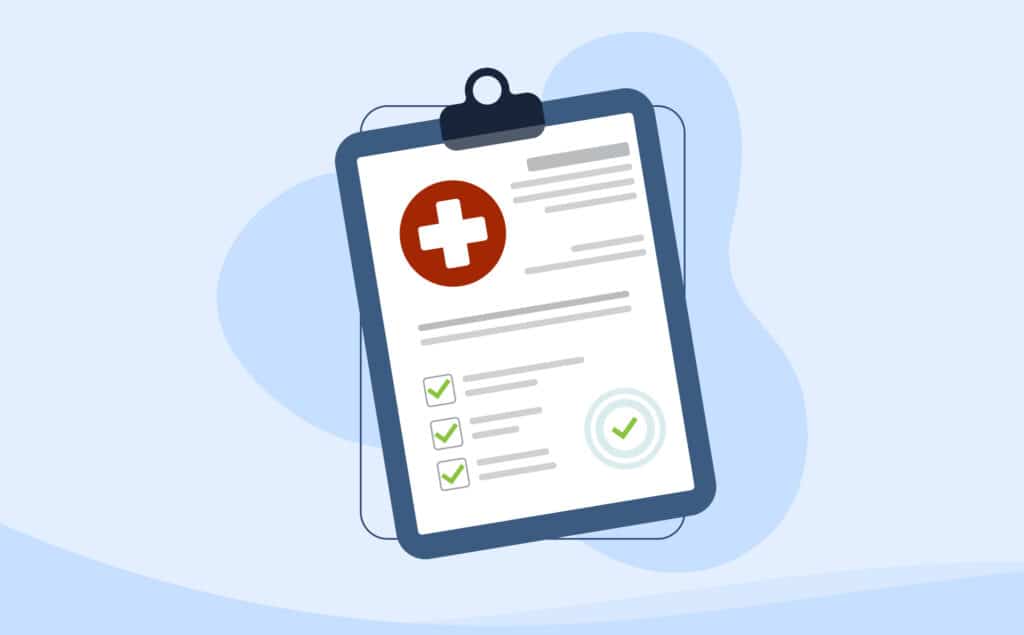Getting screened for colorectal cancer is probably not high on your spring to-do list—but it should be…
The American Cancer Society recommends that adults without a family history begin colorectal cancer screening at age 45. This guideline was recently adjusted to account for data showing increasing rates of Colorectal Cancer in younger populations. Nationwide, only 59% of eligible adults follow these guidelines–putting more than 40% of our population at higher risk.
Good news: These numbers are improving! Oshi’s clinic has been working to boost screening rates. While our baseline rates were already higher than the nationwide average, Oshi’s clinic increased CRC screening rates within one national health plan population to 95 percent—a 20 percent increase from baseline.
We want to continue this important work this month, during Colorectal Cancer Awareness Month, and we encourage you to get screened.
Why does screening matter?
Early detection of cancer saves lives. Screening helps detect early-stage cancers or even precancerous polyps before they become deadly.
A 2024 NCI study showed that a 10 percent increase in screening rates reduced colorectal cancer deaths by 21 percent. Oshi’s proven rise in screening rates could lead to a higher reduction in CRC deaths.
Why aren’t 100 percent of people getting screened?
The National Institute for Health reports that the most significant barriers to CRC screening involve fear and anxiety about the procedure. Additionally, many people don’t get screened because they simply don’t know where or how to get screened.
At Oshi, we want to ensure that every eligible adult is educated about getting tested and has the tools to overcome the emotional and psychological factors–and gets screened.
What kind of screening is right?
While a traditional colonoscopy is still the gold-standard, some patients may be able to take an at-home screening test. It’s essential that you work with your healthcare provider to determine which test is right based on your personal medical history:
- Screening Colonoscopies. It is still recommended that high-risk patients be screened using a colonoscopy. While more invasive than at-home tests, colonoscopies are highly effective at identifying tumors and polyps. The doctor can also remove any precancerous lesions found during the procedure.
- At-Home Screening Tests. While at-home tests aren’t as accurate as a screening colonoscopy, they are an excellent first step, especially for low-risk patients. At-home screening tests detect DNA markers that can be an indicator of cancer. Your doctor will prescribe a colonoscopy if you have a positive result on an at-home test.
Where do I go to get tested?
If you meet the recommended guidelines for a CRC screening, you should first contact a GI doctor. A gastroenterologist can help you navigate the process and decide which type of screening you need.
If you don’t have a GI doctor, we invite you to schedule an appointment with Oshi. Oshi’s virtual GI care is in-network with most insurance companies. While most CRC screening procedures require an in-person visit, our virtual team can support you. We will coordinate with your clinical team and help with preparation, education, and follow-up care.
If you are already an Oshi patient, we will help you navigate this process with the same high-touch care coordination we use for all our services.
How do I prepare for the test?
Even after you’ve made the appointment and scheduled your test, you may feel a bit of anxiety or fear as screening day approaches.
By educating yourself on CRC screening and considering the risks vs. benefits, you have already taken your first steps in eliminating common barriers to screening. As you get ready to take your test, remember that while the test isn’t fun, it’s a temporary discomfort, and the benefits of early cancer detection are well worth it.
If you are still anxious about the test, contact your Oshi care team. We can counsel you on ensuring your preparations are adequate, answer your questions, and educate you on the common misconceptions about CRC screening.
Spread the word: Get screened
It’s telling that just after March comes April, the National Month of Hope. Although it may sound sentimental, we have a lot of hope regarding the impact of early detection of colon cancer.
We are hopeful, but there is always more to do. While we have made strides in increasing screening rates, colorectal cancer is still the second leading cause of cancer deaths in the United States from cancers affecting both men and women.
Our partnerships with the ACG and AGA are part of our efforts to do more. We hope that this network will continue to grow in 2025, and with it, the rates of CRC screening alignment will continue to increase until 100 percent of people get the recommended screenings.
The evidence is unquestionable–screening and early detection save lives. Let’s keep up the momentum and get all eligible adults screened.
Oshi is your partner in digestive health
Feel like your digestive concerns are running your life? You’re not alone—and we’re here to help you find lasting relief.
Oshi Health GI providers, gut-brain specialists, and registered dietitians work together to address your symptoms and find solutions that actually work for you.
Whether you’re dealing with chronic digestive issues or unpredictable symptom flare-ups, our GI specialists deliver:
✔ Personalized care plans tailored to your lifestyle
✔ Science-backed strategies to calm your gut
✔ Compassionate, whole-person care
✔ And so much more!
Ready to take control of your gut health?




